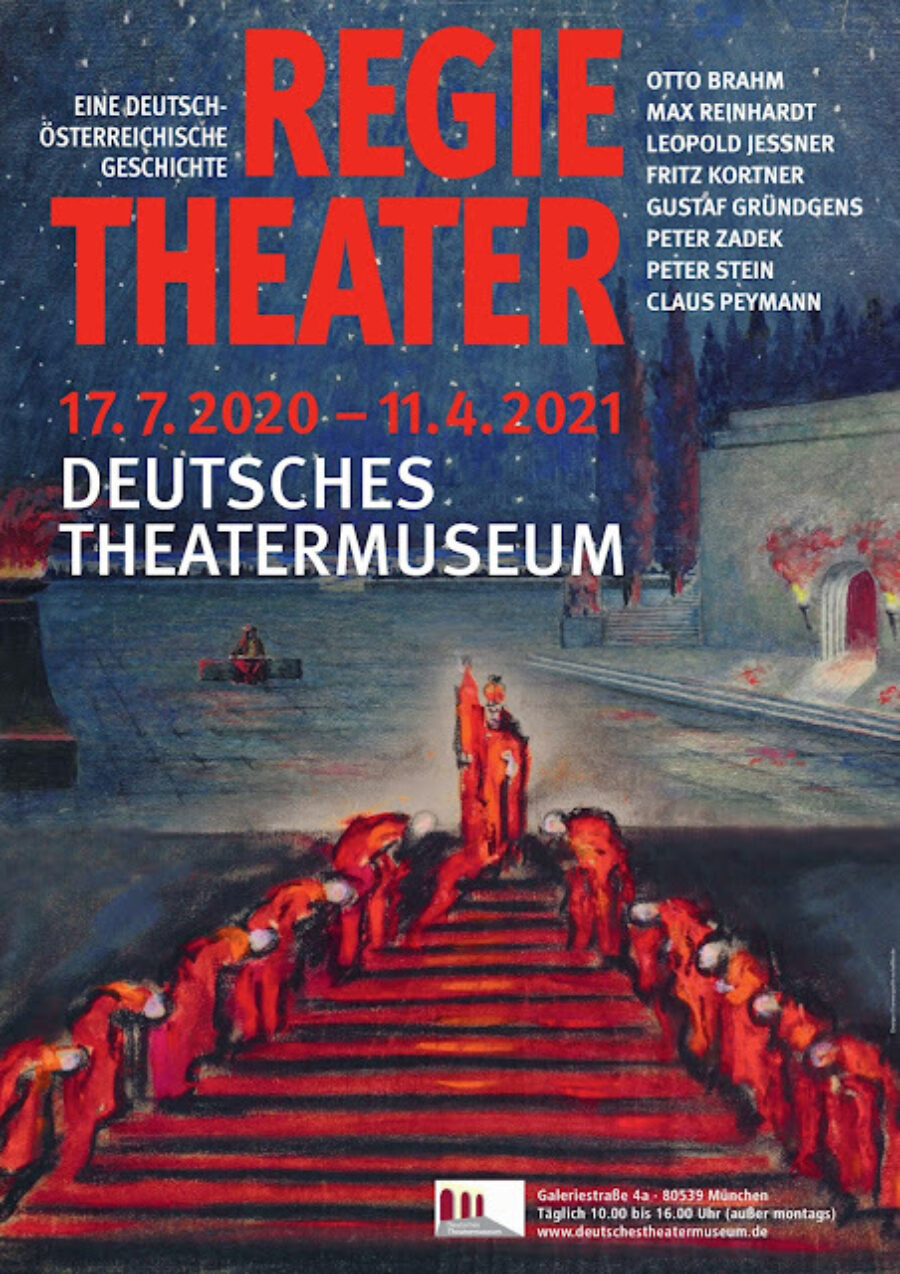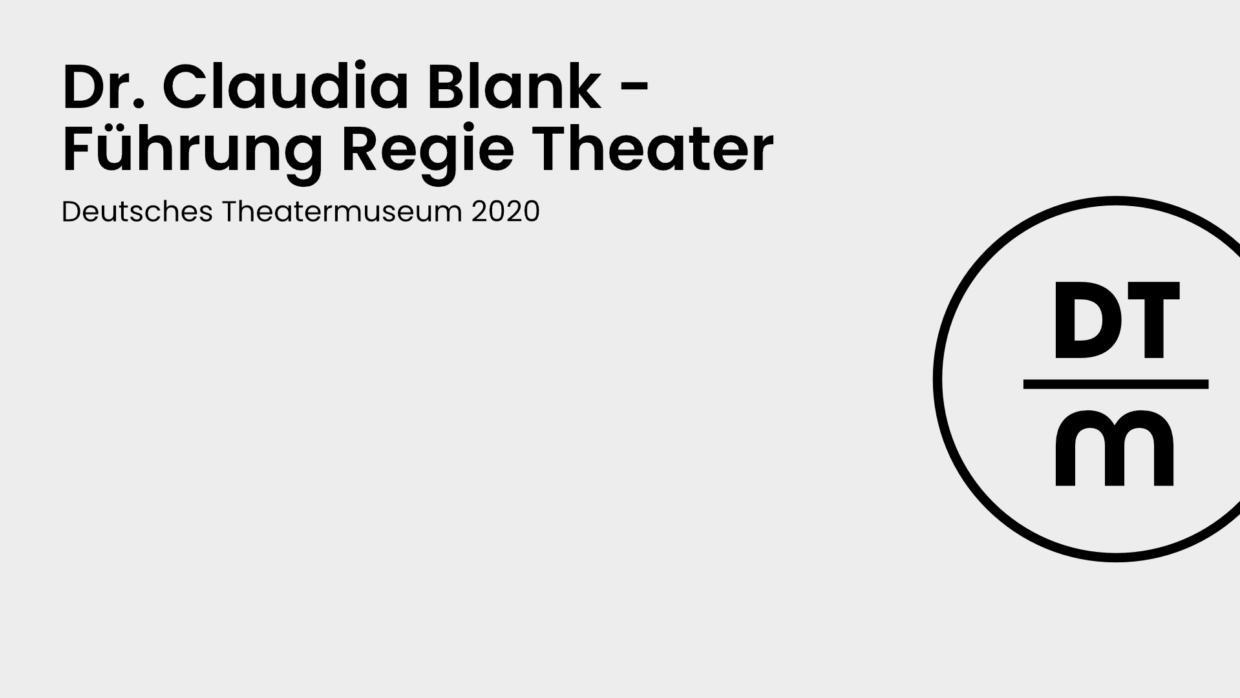Aug 1, 2021 - Aug 1, 2021
Regietheatre
A German-Austrian Story

Regietheater – a provocative term in German-language theatre history. For over a century, it has polarised people both on and off the stage, as well as in the audience and in critiques. The conservative faction, eager to cling to established practices, frequently invokes fidelity to the text, a central concept in the debate about what Regietheater is allowed to do and what it is not.
The generation of 1968, represented on German-language stages by Peter Zadek, Claus Peymann, and Peter Stein, is often credited with a monopoly on Regietheater, as if it were their invention. However, one of the most heated discussions on this topic arose as early as 1919, during the premiere of Friedrich Schiller's Wilhelm Tell in the production by Leopold Jessner.
The exhibition and its accompanying publication were initially to be titled Regie Generations, suggesting a broader focus that was ultimately discarded. Nevertheless, it is noteworthy that innovative developments in the history of German-language directing have often emerged from generational confrontations; these traces will be explored.
The story told here begins with Otto Brahm and Max Reinhardt, who sought to profile his own theatre in divergence from his intellectual mentor. It was within this context that Fritz Kortner and Gustaf Gründgens began their careers, seeking their own artistic paths in contrast to him. Peter Stein, once a directorial assistant to Fritz Kortner, later viewed him with skepticism but adopted scenographic ideas from his predecessor, Max Reinhardt.
This narrative is visually emphasised primarily through stage design sketches, as the scenographic material is considerably more fruitful than the photographic documentation from the early decades of the 20th century – due to technical limitations. Extensive research brings together original graphics from collections in Cologne, Vienna, Berlin, Salzburg, Saarbrücken, and Munich.

Dr. Claudia Blank - Führung Regie Theater, DTM 2020

